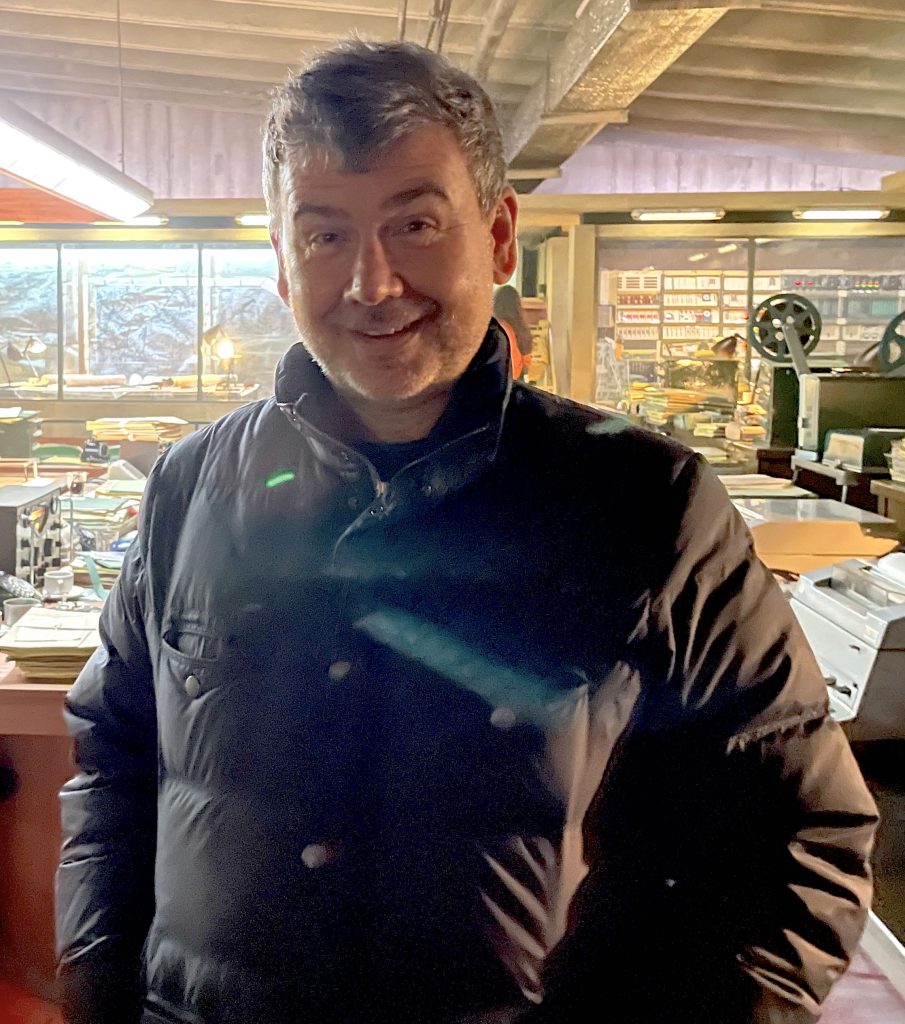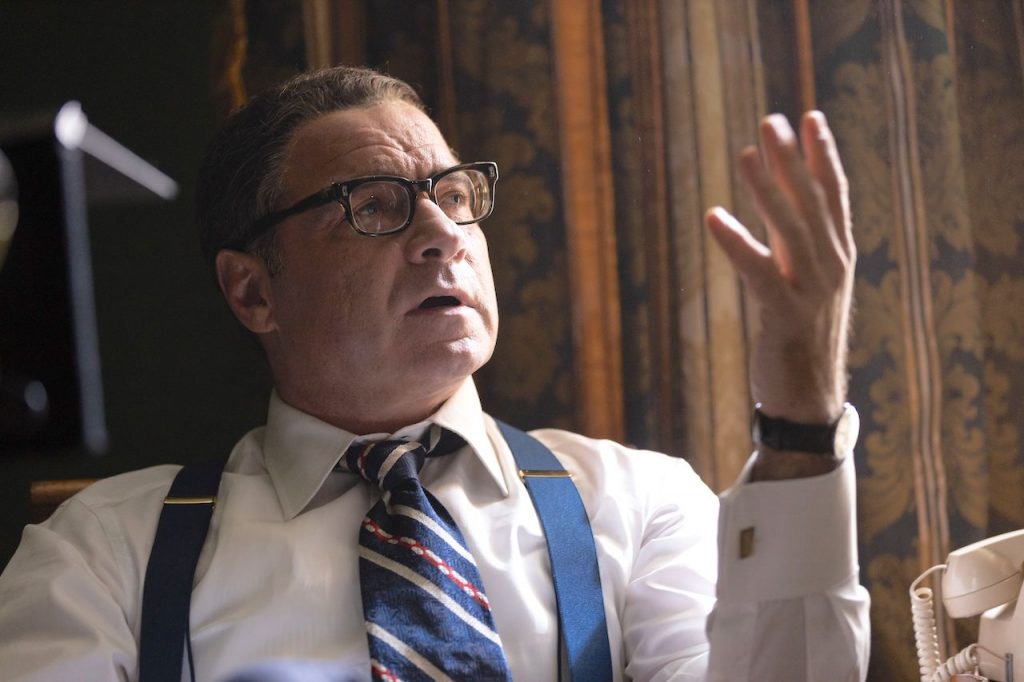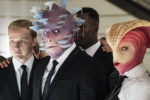A Conversation With Nicholas Martin About “Golda”

Golda Meir, known as the ‘Iron Lady of Israel,’ is known for her simultaneous tough, yet compassionate, leadership during one of the most tumultuous and bloodied chapters in Israel’s history – the nineteen day Yom Kippur war against a coalition of Arab states led by Egypt and Syria.
Screenwriter Nicholas Martin (Florence Foster Jenkins, Between The Lines) spent years conducting painstaking research in order to tell an authentic story surrounding Golda Meir’s (portrayed by Helen Mirren) leadership during this time. He spoke with Creative Screenwriting Magazine about his getting this story onto the screen.
Significance Of Yom Kippur
“It was a huge turning point for the nation. I think Israel realized after the Yom Kippur war that they were far more alone in the world than they thought. American support during the war had been very slow in coming, and may not have come at all if it hadn’t been for Golda and her powers of persuasion,” says Martin.
It was a time of reckoning for Israel that it would need to build its own independent defence forces and separate itself from the United States and the Europeans – particularly the Germans and Italians.

Nicholas Martin
1973 was a painful geopolitical moment in global history when OPEC cut off oil supplies to the West leading to a great energy crisis. Martin recalls being wrapped in blankets and warmed by candles as a child during a freezing English winter. This happened in the aftermath of the Yom Kippur War.
Who Was Golda Meir?
The screenwriter chose to focus his story on Golda because he’s “always very drawn to stories of people who display enormous courage and who are capable of withstanding enormous pressure.” Golda was tenacious and determined. Martin remembers Golda from his childhood. “I can remember that face and her smile on her grumpy face… and the smoking.”
As Nicholas Martin conducted more research into Israel’s difficult history, he decided that telling the story of Yom Kippur was the most powerful way to do so. “It was really the moment in her life where all of her experience came to a point… Very much like Churchill at the beginning of the Second World War, when he famously said, ‘All of my mistakes have brought me to this moment.”
Golda was nearing the end of her life (she died five years after the war) and she’d seen and experienced so much pain and conflict in the world. “She’d seen the pogroms in Russia. She’d seen the devastation that the Nazis had caused in Europe. She’d seen the Israeli war of independence in 1948.”
Both Martin and Golda understood that the world is a terrible place and the only way to cope is to accept that bitter fact. This was fertile thematic soil for the screenwriter. “When I dug further into it with research, the story began to unfold in front of me. This was a process that took eighteen months or so that led to the script.”
I think Golda was just born different to most people.
When Golda was around ten years old, her family escaped from the area of Russia where Jews were forced to live to live to Milwaukee, Wisconsin. “She noticed that a lot of the children didn’t have enough money for books so she organized a campaign. She leafleted, she organized a public meeting in the local town hall and got hundreds of people to turn up. She stood in front of them as a ten-year-old and made an impassioned speech about how her comrades in the school needed books. In that evening, she raised enough money and nobody wanted to argue with her because she was so completely convinced of the virtue of what she was doing. She carried this spirit throughout her life.”
Golda Meier was also a great listener and considered all sides of an argument. “In her cabinet meetings, she would sit in silence, everyone would voice their opinion, and she’d listen and consider all points of view. There would be discussion and then she’d declare, ‘This is what we’re going to do.‘”
She was a very practised leader during the Yom Kippur War and very practised at getting the best out of people. “I think that’s what got Israel through that war reasonably unscathed. They lost over two and a half thousand soldiers, which in a country like Israel was a hell of a lot. She was blamed for it and her name was tarnished forevermore. But it could have been so much worse had Moshe Dayan become Prime Minister.”
Golda Meir executed her military strategy with three-dimensional chess-like precision. She had to deal with Henry Kissinger (Liev Schreiber) and Anwar Sadat from Egypt to navigate the conflict.

Henry Kissinger (Liev Schreiber) Photo by Sean Gleeson/ Bleeker St
In the beginning of the movie, Golda says, “I’m not a soldier. I leave the military decisions to the soldiers.” Despite her strength and resolve, she also knew her limitations. “I think that her principal contribution to the war was that she understood that diplomacy was only possible when the actual fighting was going your way. If you had a weak hand on the battlefield, you had no hand in diplomacy whatsoever.”
“If she was going to be able to negotiate successfully with the Egyptians, they would first have to be defeated on the battlefield.” Golda says in the film, “I need to get my hands around Sadat’s throat before we will be able to negotiate.”
“If she was going to negotiate with Henry Kissinger, who had an enormous influence in the region, she would have to demonstrate to him that Israel was willing to fight and that he wasn’t going to be able to push her around. So, by the time Kissinger visited Golda in Israel, she’s already had a very strong hand.”
“Golda wanted to get into a good position in terms of the battlefield so she could be able to dictate her terms, of the peace offer from a position of strength and confidence,” continues the screenwriter.
Golda Meir also led with compassion. During the research phase of Golda, Nicholas Martin adds, “She would send men off on these deadly missions, but just as they were about to leave, she’d arrive with a a thermos of soup and some sandwiches.” She wished them well, but accepted the brutality of war for Israel to survive. “I think it was painful for her because she was a woman that hated war. She hated violence. She was happiest watching people picking tomatoes and getting on with building a country. She liked the idea of people getting along, working together, and being happy.”
“I think she just got on with it. She could be very charming and quite manipulative of men. She shared that quality with Margaret Thatcher, who was famously accomplished at getting people to do stuff that they didn’t necessarily want to do,” says Martin.
“They both had a kitchen cabinet where they gathered their senior people together, making tea and cakes for everyone, as they talked about these enormously important matters.”
Golda Meir might be considered to be a feminist icon, but she never defined herself as such. “She would have just said, ‘I work hard, I get on with things and everyone just catches up with me.'”
One of the surprises in Golda, was that despite a military decision being made, Israel wasn’t properly prepared for war. Golda managed to mobilize half of Israel’s reserves about eight hours before the war was ready to begin. So, when the war began, progress was slow and Golda was stingingly blamed for it.
Golda also had to grapple with the fractured relationships between the Israeli Military Intelligence Directorate and Mossad. The two leaders hated each other and didn’t exchange information effectively. This is exemplified by forty telephone lines running under the desert, going back to Cairo to the command center being tapped by the Israelis, but the listening system was only sporadically turned on to converse battery power. Consequently, the overly-confident Israelis missed out on large chunks of intelligence.
In conclusion, we asked Nicholas Martin what makes a great screenwriter. “The first big hurdle is you’ve got to find a good idea and write it. Then find people who are going to help you make it. I’m quite good at matching scripts with stars, and I knew that Helen was going to be open to the idea of playing Golda. Stars always want to play iconic characters and Helen wanted a challenge. She’s a very tough, strong person. So, she didn’t want to do anything easy. I had a very strong, clear feeling that this was the right project for the right actor and that seems to work for me.”
Nicholas Martin also suggests writers and filmmakers discuss their ideas with sales agents or distributors to gauge the industry appetite for it before pursuing them.
Join the Discussion!
Related Articles
Browse our Videos for Sale
[woocommerce_products_carousel_all_in_one template="compact.css" all_items="88" show_only="id" products="" ordering="random" categories="115" tags="" show_title="false" show_description="false" allow_shortcodes="false" show_price="false" show_category="false" show_tags="false" show_add_to_cart_button="false" show_more_button="false" show_more_items_button="false" show_featured_image="true" image_source="thumbnail" image_height="100" image_width="100" items_to_show_mobiles="3" items_to_show_tablets="6" items_to_show="6" slide_by="1" margin="0" loop="true" stop_on_hover="true" auto_play="true" auto_play_timeout="1200" auto_play_speed="1600" nav="false" nav_speed="800" dots="false" dots_speed="800" lazy_load="false" mouse_drag="true" mouse_wheel="true" touch_drag="true" easing="linear" auto_height="true"]










You must be logged in to post a comment Login